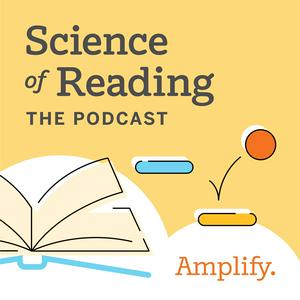Leveled reading, leveled lives, with Tim Shanahan, Ph.D.
In this episode of Science of Reading: The Podcast, top literacy scholar Tim Shanahan, Ph.D., returns to discuss his new book, Leveled Reading, Leveled Lives: How Students’ Reading Achievement Has Been Held Back and What We Can Do About It. During his conversation with Susan Lambert, he outlines what existing research says about leveled reading—and why it’s not effective. He also shares how the misuse of theory can lead to ineffectual conclusions, makes a case for the efficacy of more explicit instruction, and provides a few simple tweaks teachers can make to classroom instruction that can make a big difference for their students. Show notes:Access free, high-quality resources at our brand new companion professional learning page. Resources:Book: Leveled Reading, Leveled Lives: How Students’ Reading Achievement Has Been Held Back and What We Can Do About ItJoin our community Facebook group.Connect with Susan Lambert.Quotes: “This notion of trying to match kids to books and get everybody to their right level is, at the very least, wasteful. It's not benefiting kids.” —Tim Shanahan, Ph.D.“We're spending an awful lot of time doing a lot of work that is not only not paying off, but it's probably holding a lot of kids back.” —Tim Shanahan, Ph.D.“Maybe we should be having kids read some of these texts more than once. Maybe we should be doing some of our fluency work, not after we did the comprehension work, but ahead of time.” —Tim Shanahan, Ph.D.Episode timestamps*02:00 Introduction: Who is Tim Shanahan?03:00 Most proud of as a researcher05:00 Most proud of in education policy work06:00 First book: Leveled Reading, Leveled Lives07:00 Motivation to write: Addressing instructional levels14:00 Relevance of misuse of theory17:00 Leveled instruction isn’t effective 21:00 Self-reflections in the writing process22:00 Parallels to verbal learning24:00 What can teachers do?26:00 Fluency and reading things twice32:00 Grade level teaching opens opportunities33:00 The future of literacy development39:00 What is happening in American schools?*Timestamps are approximate, rounded to nearest minute


